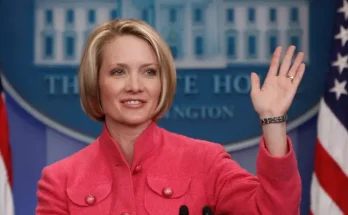In the high-stakes world of professional basketball, frustration is part of the game. Players, coaches, and fans live and die with every possession, and the referees, tasked with enforcing order amidst the chaos, often find themselves at the center of the storm. But what happens when a player’s frustration boils over, not in a heated moment on the court, but in the court of public opinion? For Sophie Cunningham, a respected veteran and the unofficial enforcer for the Indiana Fever, a simple TikTok video and a subsequent podcast appearance didn’t just voice her discontent—they ignited a firestorm that has exposed a deep and troubling crisis of integrity, leadership, and priorities within the WNBA.
It all started with a game. After a particularly frustrating contest filled with what she and many fans perceived as questionable calls, Cunningham took to TikTok to vent. In a short, candid clip, she labeled the officials “useless.” It was a blunt, unfiltered opinion, the kind athletes share in locker rooms every day. But in the public sphere, it was a direct challenge to the league’s authority. The WNBA’s response was swift and uncompromising: a $500 fine for publicly criticizing the officiating. For the league, it was a routine disciplinary action, a clear message that such dissent would not be tolerated.
But Sophie Cunningham is not one to be easily silenced. Instead of retreating, she doubled down. Appearing on a podcast, she elaborated on her frustrations, articulating a sentiment shared by many players and fans: the quality of officiating in the WNBA was becoming a serious problem. She wasn’t just complaining about one bad game; she was speaking to a systemic issue that she felt was undermining the integrity of the sport. The league’s reaction was even more severe this time. They hit her with another, larger fine of $1,500, bringing her total penalty to a staggering $2,000 for the crime of speaking her mind.
If the WNBA’s goal was to make an example of Cunningham and quell any further dissent, their strategy backfired in the most spectacular fashion imaginable. The fines didn’t silence her; they turned her into a martyr. The story exploded across social media, and what was intended as a punishment became a rallying cry. Fans, already simmering with their own frustrations over inconsistent officiating, rose up in overwhelming support of Cunningham. The hashtag #FreeSophie began trending, and the controversy became a textbook example of the “Streisand effect”—where an attempt to suppress information only serves to make it more widely known.
The public outcry was deafening and multifaceted. GoFundMe campaigns were launched to pay Cunningham’s fines, quickly surpassing their goals as fans eagerly chipped in to support her cause. Petitions circulated, demanding not only that the fines be rescinded but that the league implement a system of greater transparency and accountability for its officials. The WNBA, in its attempt to control a narrative, had lost it completely. Instead of a discussion about a player’s professionalism, the conversation was now centered on the league’s own shortcomings and its seemingly authoritarian approach to player relations.

What made the situation even more galling to observers was the glaring inconsistency in the league’s disciplinary actions. While Cunningham was being penalized thousands of dollars for her words, dangerous on-court actions often seemed to receive a mere slap on the wrist, if any punishment at all. Throughout the season, superstar rookie Caitlin Clark has been the target of numerous “cheap shots”—overly aggressive, non-basketball plays that have put her safety at risk. Yet, the players committing these acts have often escaped serious consequences. This created a damning perception: the WNBA appeared more willing to punish a player for hurting the feelings of a referee than for physically endangering another player.
The controversy has thrown the WNBA’s priorities into question and highlighted a stark contrast with its male counterpart, the NBA. In the NBA, outspoken commentary is not just tolerated; it’s often celebrated. Figures like Charles Barkley have built entire second careers on their brutally honest, and often critical, analysis of players, coaches, and officials. The NBA understands that passionate, unfiltered debate is part of the entertainment, a key ingredient that fuels fan engagement. The WNBA, on the other hand, seems to be operating under a different, more restrictive philosophy, one that prioritizes image control over authentic dialogue and, in doing so, fosters a hostile environment for honest feedback.
This heavy-handed approach is not just alienating players; it is eroding trust with a fanbase that is more engaged and digitally savvy than ever before. In an era of unprecedented growth for the WNBA, fueled by a historic rookie class, the league’s leadership seems to be fumbling a golden opportunity. Instead of embracing the passionate discourse that surrounds their product, they are attempting to sanitize it, creating a disconnect between the front office and the very people who buy the tickets and watch the games.
Sophie Cunningham’s stand, intentional or not, has pulled back the curtain on a league at a critical crossroads. It is no longer just about a few bad calls or a single player’s fines. It is about a systemic failure of leadership. Can the WNBA evolve to meet the demands of its modern audience? Will it address the officiating crisis with transparency and a commitment to improvement, or will it continue to punish those who dare to point out its flaws? The league’s next moves will be crucial. By trying to make an example out of Sophie Cunningham, they inadvertently made her a leader. Now, they must contend with the movement she inspired, a chorus of voices demanding accountability, fairness, and a league that values the integrity of its game over the fragility of its image.


